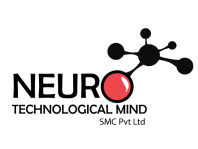Cloud Computing Mastery: From Basics to Advance

Course Description
This course is designed to provide a deep dive into Cloud Computing, encompassing fundamental principles, advanced technologies, and practical applications. It is structured to guide learners through the basics of cloud services, infrastructure, security, and deployment models, progressing towards advanced topics such as distributed computing, big data on the cloud, serverless architectures, and cloud-native applications. With a blend of theoretical knowledge and hands-on projects, participants will gain comprehensive insights and skills to design, implement, and manage cloud solutions effectively.
Week 1: Introduction to Cloud Computing
- Overview of Cloud Computing
- History and Evolution of Cloud Computing
- Cloud Computing Service Models (IaaS, PaaS, SaaS)
- Deployment Models (Public, Private, Hybrid, Community Cloud)
Week 2: Cloud Infrastructure and Virtualization
- Understanding Virtualization: Core Concepts and Technologies
- Physical vs. Virtual Resources
- Hypervisors and Virtual Machines
- Introduction to Containers and Containerization
Week 3: Core Cloud Services
- Overview of Core Services: Compute, Storage, Networking
- Cloud Storage Options (Object, Block, and File Storage)
- Virtual Networks, Subnets, and VPNs
- Cloud Compute Services (VMs, Containers, Serverless Functions)
Week 4: Cloud Providers and Platforms
- Introduction to Major Cloud Providers: AWS, Azure, Google Cloud
- Comparison of Providers: Services, Pricing, and Use Cases
- Setting up a Cloud Account and Navigating the Console
- Hands-on Lab: Deploying Your First Cloud Resource
Week 5: Cloud Security and Compliance
- Fundamentals of Cloud Security
- Identity and Access Management (IAM)
- Data Encryption and Security Groups
- Compliance and Legal Issues in the Cloud
Week 6: Networking and Content Delivery
- Cloud Networking Concepts
- DNS, CDN, and Load Balancers
- Interconnecting Cloud Resources and Hybrid Environments
- Hands-on Lab: Setting up a Cloud Network
Week 7: Databases and Data Management in the Cloud
- Cloud Database Services: SQL and NoSQL
- Data Warehousing and Big Data Solutions
- Introduction to Data Migration Strategies
- Hands-on Lab: Deploying a Cloud Database
Week 8: DevOps in the Cloud
- Introduction to DevOps and its Importance in Cloud Computing
- Continuous Integration and Continuous Deployment (CI/CD) Pipelines
- Infrastructure as Code (IaC)
- Hands-on Lab: Implementing a CI/CD Pipeline
Week 9: Cloud Application Development
- Building and Deploying Cloud-Native Applications
- Microservices and Container Orchestration with Kubernetes
- Serverless Computing and its Use Cases
- Hands-on Lab: Developing a Serverless Application
Week 10: Cloud Monitoring, Management, and Optimization
- Monitoring Cloud Resources and Applications
- Cloud Management Tools and Best Practices
- Cost Management and Optimization in the Cloud
- Hands-on Lab: Setting up Cloud Monitoring and Alerts
Week 11: Advanced Cloud Topics
- Introduction to Hybrid and Multi-Cloud Architectures
- Edge Computing and the Internet of Things (IoT) in the Cloud
- AI and Machine Learning in the Cloud
- Hands-on Lab: Implementing a Multi-Cloud Solution
Week 12: Capstone Project and Review
- Capstone Project: Designing and Implementing a Cloud Solution
- Project Presentations and Peer Review
- Course Review and Final Exam
- Future Trends in Cloud Computing
Course Scope
- This course covers a wide range of topics within cloud computing, ensuring learners understand both theoretical concepts and practical applications. Topics include cloud service models (IaaS, PaaS, SaaS), virtualization, cloud storage, security and compliance, cloud-native technologies, microservices, and more.
Course Benefits
- Mastery of cloud computing concepts, technologies, and architectures.
- Hands-on experience with leading cloud service platforms like AWS, Azure, and Google Cloud.
- Skills to design and deploy scalable, reliable, and secure cloud applications.
- Enhanced career opportunities in a rapidly growing field.
Course Technical Knowledge
- Basics of networking and web services.
- Fundamental programming skills.
- Understanding of database concepts and SQL.
Required Software
- AWS Free Tier Account
- Microsoft Azure Free Account
- Google Cloud Platform Free Tier
- Docker (for containerization concepts)
- Kubernetes (for orchestration)
Enrollment Eligibility
- Basic understanding of computer networks and the internet.
- Familiarity with programming concepts and any high-level programming language.
- A desire to learn and adapt to evolving cloud technologies.
Course Duration
- 12 Weeks (3 Months)
Course Fee
- 3,850/- month. One-Time Full Fees Rs. 11,499/-.
Why Choose Us
- Experienced instructors with real-world cloud computing expertise.
- Comprehensive curriculum covering from basics to advanced topics.
- Interactive learning with projects, case studies, and live sessions.
- Continuous support and career guidance from industry professionals.
Free Available Resources & Materials
- AWS Training and Certification
- Microsoft Learn for Azure
- Google Cloud Training
- Docker and Kubernetes documentation
- Cloud computing eBooks and whitepapers
Course-Related Books
- Cloud Computing: Concepts, Technology & Architecture” by Thomas Erl
- AWS Certified Solutions Architect Study Guide” by Ben Piper and David Clinton
- Microsoft Azure Essentials” by Michael Collier and Robin Shahan
- Google Cloud Platform in Action” by JJ Geewax
FAQs
Q: Do I need prior cloud computing experience?
No, the course is designed to start with the basics and gradually progress to advanced topics.
Q: What kind of projects are included?
Projects range from setting up simple cloud infrastructures to deploying complex, scalable cloud applications.
Q: Is certification provided?
Yes, upon successful completion, you will receive a certificate of completion.
Q: Are there any additional costs?
No, the course fee includes all necessary materials.
Q: How is this course different from others?
Our course is uniquely designed to be hands-on and industry-relevant, ensuring you learn not just the theory but also how to apply it in real-world scena

